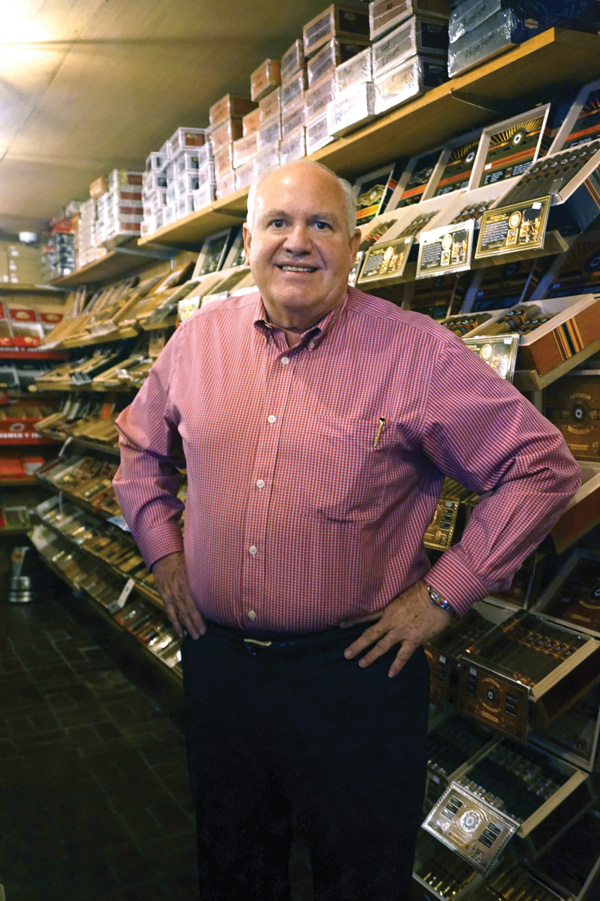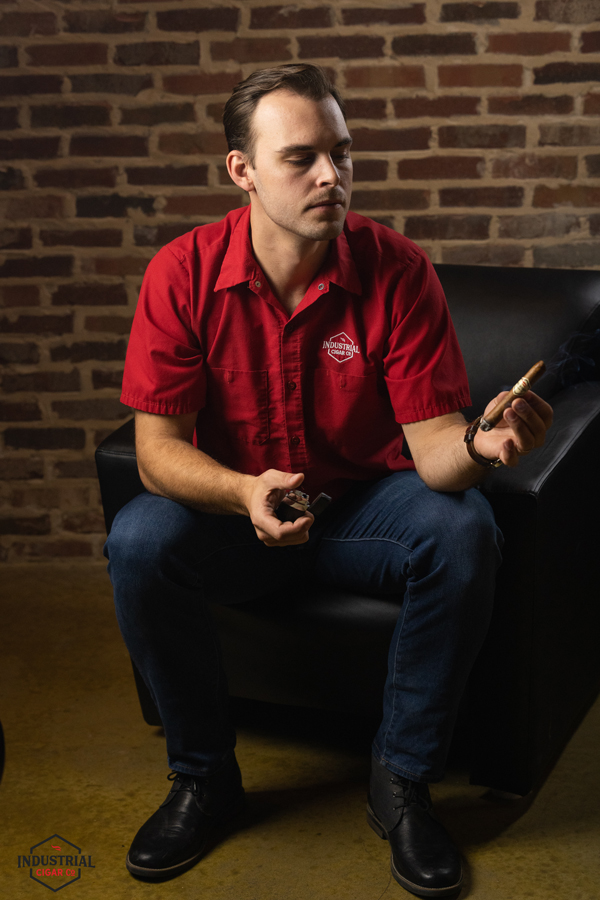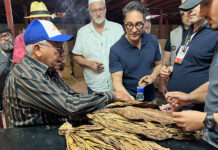Anstead: The best value in a boutique cigar is that it should be an item that you might have some exclusivity in the market making it a brand that if a customer enjoys and wants to continue smoking that we are not competing with other stores or online.
Frakes: For us, it’s huge. We have a good balance of big and little guys, but we focus primarily on the boutique cigars. What it offers our customers is a better bang for their buck and trying something that’s different. If we have a Romeo [y Julieta] cigar smoker or a Montecristo or fill in the blank of the big guys, we ask our customer, “What do you like about it? Ninety-nine percent of the time it’s going to be, “I’m not sure. I like the flavor, and it’s smooth,” and 99 percent of the time, that’s it. But boutique [cigars], especially those who do it right, offer depth, and they offer consistency because they have no choice but to produce the best cigars they can produce every single time. Those first impressions are eternal. It gives us buy-in and connection to the manufacturers and the owners. Ultimately, it gives us the ability to put something new into the hands of a customer that hasn’t experienced a truly exceptional cigar—they’ve only really smoked the cigars that they may have had at a wedding or some other special occasion. But for us, the value is massive. I don’t think we’d be at the point where we are without a heavy influence and lifelong partnerships with boutique manufacturers.
What do the best boutique brands do well? Where do you think they struggle or need improvement?
Harvey: There is less of a focus on appealing to “everyone,” and instead I believe boutique brands busy themselves with making cigars that get them excited. That is why most of the best ones are so good at staying consistent—because the audience they are ultimately trying to please is very small, so there aren’t the same humongous tendencies that bog down the bigger names in our industry.
Kelly: I was speaking to a broker who deals exclusively with boutique blends, and I found it interesting that he said his biggest problem with getting shops to carry boutiques is that a lot of shops say they do not have room in their humidor. It also made me think that when our store brings in a blend that customers do not know, even though it may be a great cigar, it requires our staff to “hand-sell” the cigar. I find that the best boutiques generally have very good marketing and social media content. I would say some—not all—struggle with consistency, especially when it comes to box count. I prefer a line to come in and all box counts are the same for a specific blend. That makes it much easier for our guys to deal with in our POS system.
Hayes: I feel that a lot of boutique brands do great by connecting with their customers. I hear stories all the time about [how] one of my customers communicates directly with the brand owner of a boutique cigar. That’s fantastic. As far as the things I think could be improved, that differs from brand to brand. However, I think all of them could benefit from doing a more thorough job of helping the consumer truly understand what makes their product unique and “boutique” apart from the mere label.

Anstead: They have unique packaging, have a strong social media presence and can maintain the supply to the shop. Packaging is a problem with a number of the brands, or they have a cigar that has some following but they are so limited that you can’t maintain enough inventory to keep the brand alive. The most important thing is [if] you create a new customer that now wants to buy by the box and you can’t reorder, you have most likely lost him after all the work your staff did.
Frakes: They focus on the cigar and the blend, and they’re humble in the process and understanding where they are. I think people gravitate toward that. I think there are two things boutiques struggle with, one of which is underestimating the value of being at the factory and basically being a gringo with a checkbook, as some of the factories say. I would say the vast majority of small guys get to a point where they kick themselves for not being there. The second grave error that does work in favor for some is making it entirely about themselves and thinking as though they don’t have anything to learn. There are certain personalities that may feel they don’t make mistakes in their blends or in their manufacturing, and that it’s their way or the highway, so to speak. That infallible mentality turns around to bite them when you look at the way their brand is perceived in the marketplace.
What’s your store’s best-selling boutique cigar brand?
Harvey: Hands down, we are an Oveja Negra shop. Black Label Trading Co., BLK WKS Studios, Dissident and Emilio are our highest-selling brands. I want to add this though: I think that James Brown (Oveja Negra), Kyle Gellis (Warped Cigars), Sébastien Decoppet (Cavalier Genève), Nick Melillo (Foundation Cigars), Skip Martin/Mike Rosales (RoMa Craft), Robert Caldwell (Caldwell Cigar Co.) and Matt Booth (Room101) are the future of our industry. It’s because of these brands and their integrity to their craft and their business that we are able to keep our doors open with this business model as our focus. The fact is that we wouldn’t be talking about “boutiques” if the cigars weren’t good, and lucky for me, they can be counted among the best our industry as a whole has to offer.
Kelly: Our best-selling boutique would be Kristoff for sure, followed by United Cigars, specifically Atabey and Bandalero. When we brought Kristoff into the humidor in 2013, they quickly became one of our best-selling brands. It is not only a great cigar brand, but it was also largely due to the support and friendship we received from the owner and the entire sales team.
Hayes: We do extremely well with a small number of boutique brands. ADVentura, Caldwell and Eiroa make the biggest impact. However, RoMa Craft, Warped, Rojas and Room101 hold their own as well. That being said, without a doubt, the biggest number of sales we make comes from our store-exclusive boutique offerings that we’ve created in association with a number of great manufacturers.
Anstead: Leaf by Oscar. Its unique packaging is what gave the cigar its jump, the quality is there, and when it was introduced, it exploded in our shop, but we were always able to reorder and there was never an interruption. It’s been a top-selling cigar for three to four years in our shop.

Frakes: Boutique-wise, we have Atabey and Byron, which is really our store’s top line. To this point, in 2021, we have already sold through somewhere in the ballpark of 17,000 Atabeys, and we’re a small store! So that’s one top line. Principle Cigars is another one that’s near and dear to our hearts. Darren [Cioffi] with Principle understands tobacco always changes and doesn’t try to make the same cigar every time, so it keeps people excited to smoke what else comes out from them because it’s going to be slightly different. Crux is a staple to our humidor. The Haugens are great people, and they create a great product. And I’ll tell you, an up-and-coming manufacturer people need to pay attention to is Jake Wyatt Cigars out in California. They actually roll their cigars in the Dominican and are killing it. They’re good guys. They’re retailers, and they’re fun to work with.
This story first appeared in the November/December 2021 issue of Tobacco Business magazine. Members of the tobacco industry are eligible for a complimentary subscription to our magazine. Click here for details.







